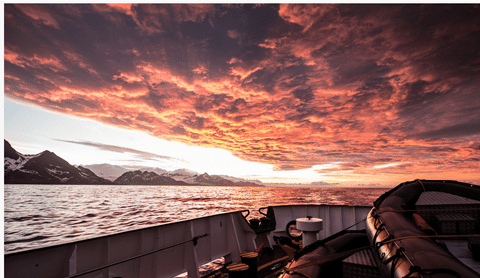Forward to the book “Real Risk”
Risk used to be more prevalent in our society – and I would argue, more viscerally joyful than actually risky in an objective sense; the open door in the old style moving trains or ‘riding the hook’ as the old builders used to do to guide a load up a building site. Nowadays risk is seen as bad and to be eliminated, no questions asked. But I wonder if in doing so we are causing unexpected problems, one being boredom. As Victor Frankl once wrote, ‘boredom is now causing, and certainly bringing to psychiatrists, more problems to solve than distress’.
I first met Rob Long when I was director of a building company and came across a rare approach to risk that looks through the purely-numerical-analysis method to the deeper relationship we have with risk. As Rob shows, a relationship with risk is essential for our own maturation and learning.
Rob constantly draws out this need we have for growth, development, challenge, adventure, learning, imagination and ultimately, meaning and fulfilment. In encouraging us to embrace risk with wisdom, he keeps the proverbial baby whilst dealing with the bathwater. Boredom is kept at bay. This needs to be celebrated.
I love adventure. For me, risk is an integral part of that adventure. Whether it’s climbing a mountain, negotiating rapids or simply arriving in a non-English speaking city with no guidebook and no itinerary, there is something compelling about the unknown. Some strange relationship between the sick feeling of fear and the joy of pushing past it. In so doing you earn something valuable. Life feels richer and more, well, real.
My cousin died at 21 in an avalanche whilst skiing in Australia’s back country. A risky, adventurous activity ended in the worst possible way. At his funeral his brother and another of my cousins decided with me to organise an adventure in his honour. Rather than shy away from risk, the rule we established for ourselves was simple: at each decision point we would take the more difficult option.
That is what saw us crossing Mongolia in the middle of winter using only horses and camels, and, when the wind was up, kite-skis. That we were out of our comfort zones goes without saying. We were managing risk the entire time. The adventure made us much closer to each other and gave us newfound confidence in dealing with the unknown. In addition it was incredibly rewarding.
There is something free and soulful about the exhilaration of jumping on the back of a truck in Patagonia or jumping into the sea in Antarctica. Not necessarily safe, they are definitely enriching experiences. This quest for meaning and enrichment is deep within us. It may come from a Paleolithic need to catch the wild animal or go hungry, where Charles Darwin helped reward (via natural selection) the ones who would take as much risk as possible for success without dying (or at least not until they had sired a few kids). Whatever its origin, the word most closely associated with risk is ‘reward’. You can’t have one without the other.
In the worlds of regulation, academia and boardrooms many obsess about the numerics of risk to the detriment of a real understanding of it. Some are good at counting risk but cannot discern its true value. How can anyone know about risk if they have spent their whole existence trying to avoid it?
How can one understand risk if one doesn’t take risks? The truth is, risk makes sense. In the world of risk orthodoxy the opposite is the case; one would think risk is evil, to be feared and unnecessary. This is Rob’s third book on the theme of risk and learning. This is a book about the realities of living in a world where things go bump in the night, wheels fall off and fallible people learn from mistakes.
A world where millions of Australians don’t even think twice when walking one metre from a two tonne object driven at speed by a stranger yet in their workplaces work to a regime that demands a guardrail when working at a height of more than about one metre. This muddled state is highlighted Introduction by Rob in his books, where an individual’s acceptance – and even thirst for – risk in his private life contrasts with a complete abhorrence of risk in his public life. No wonder people are so confused and unable to discern real risk from illusions of risk.
So what will the fear of risk give us? We may get to the stage where our children won’t know how to play without a device of some kind. They may not be able to undertake an activity without the safety advice of an expert. They may not be able to have fun or adventure with just themselves and whatever is available – sticks, stones and dirt. And so, when all risk is banned, all adventure is harnessed, all safety is deified and every sharp object is wrapped in protective foam, will we know how to be truly human? As we get closer to this risk-free reality, paradoxically we will see more societal pathology. We must bravely resist this tendency.
Warren Buffet might define financial risk in the pejorative as coming from ‘not knowing what you are doing’ but more broadly the Danish theologian Søren Kierkegaard said ‘during the first period of a man’s life the greatest danger is not to take the risk’. We’ve heard enough about the negatives of risk. Let’s learn more about the necessities of it.
James Kell
Adventurer, Photographer, Thought Leader and Businessman
James Kell’s Blog: Carpe Diem (Seize the Day)




Do you have any thoughts? Please share them below